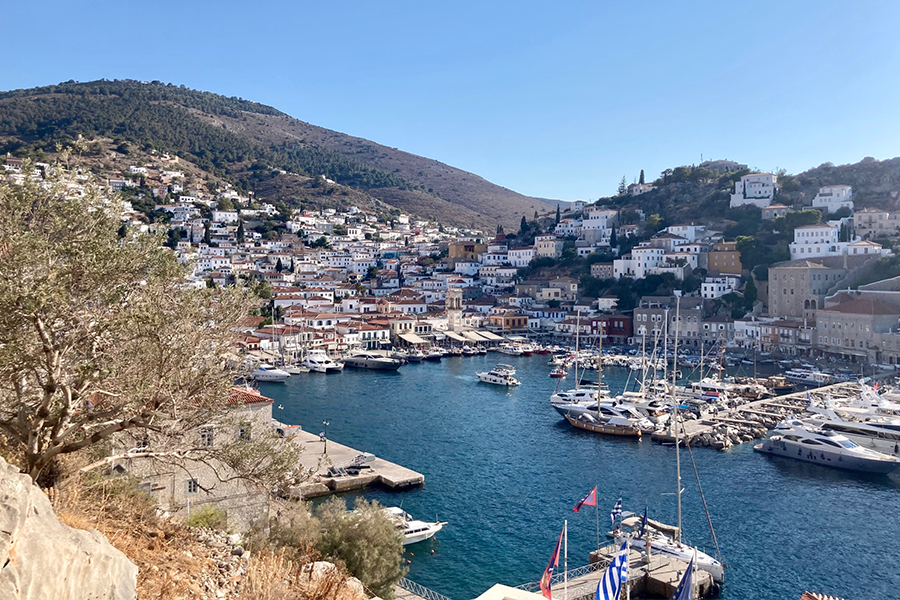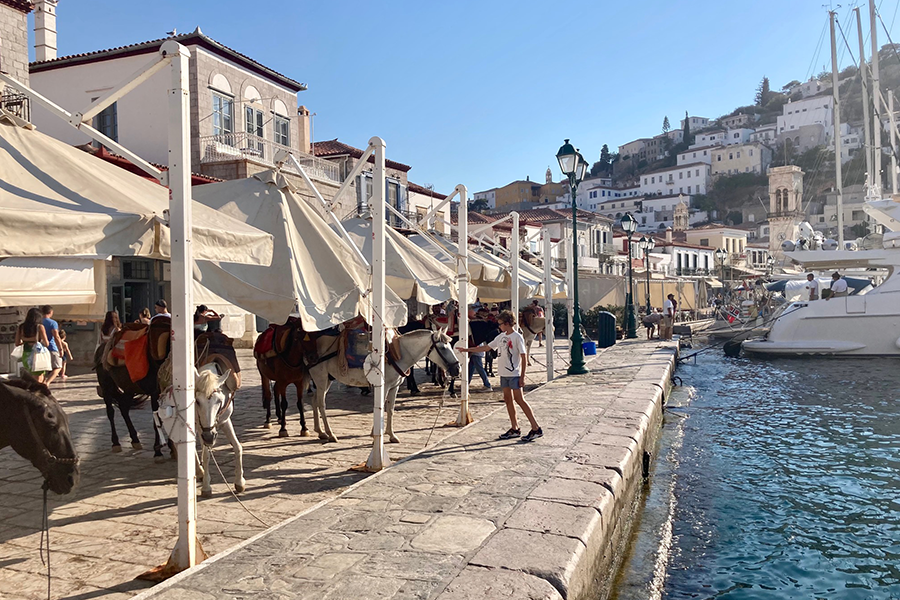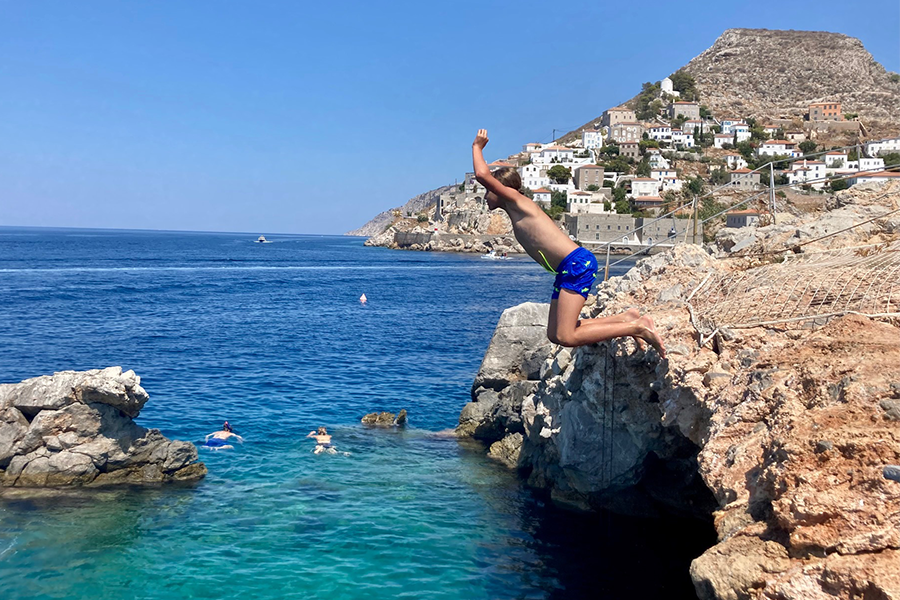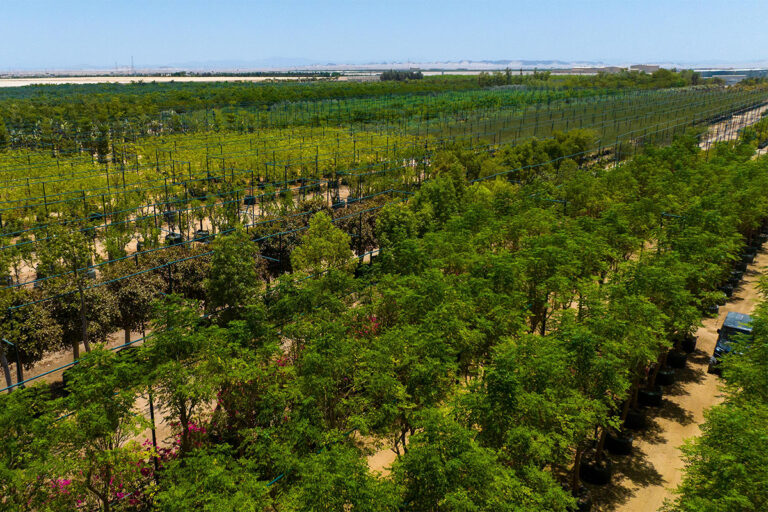
Hydra is the island of cats and as a visitor it’s not a bad idea to do as they do. Eating, drinking, walking and resting are all celebrated, as well as swimming and sunbathing!
Arriving by ferry from Athens you round a headland and are greeted by the one main town, known simply as “Hydra Port”, which consists of a crescent-shaped harbour. The heart of Hydra, it is surrounded by boutique shops and cafés and restaurants with tables spilling out onto the pavement.

The island is only 10 miles long and most of it is uninhabitable. You don’t need to go far to lose the crowds. Narrow cobbled streets lead up into the hills where you’ll find whitewashed churches (more than 300 of them), crumbling mansions and sleeping cats.
As well as walking, you can travel to various different beaches by water-taxi. The banning of cars and the use of around 500 donkeys as a means of public transportation explain how Hydra has preserved its distinctive atmosphere through the passage of time. Old footpaths cross the island leading to aged monastries, secluded beaches, and breathtaking hilltop views which are perfect for enjoying the magical sunsets. You can also explore on horseback.

A small island in the Saronic Gulf, it’s ideal for scuba diving. The sea bottom around Hydra has many interesting reefs where jewel-coloured corals and pebbles shine up at you from the depths. Although its name might imply water, the island is dry but for a handful of wells and most of the houses still have working cisterns for collecting rainwater.
Surrounded by the clearest water anywhere, it is a place of pine-scented coves and warm creviced rocks.
There is no airport, no high-rise buildings or big hotels. Leonard Cohen, Canadian singer-songwriter and one-time home owner on Hydra, found peace and refuge here and said of the island that “nothing offends the eye”![]()









